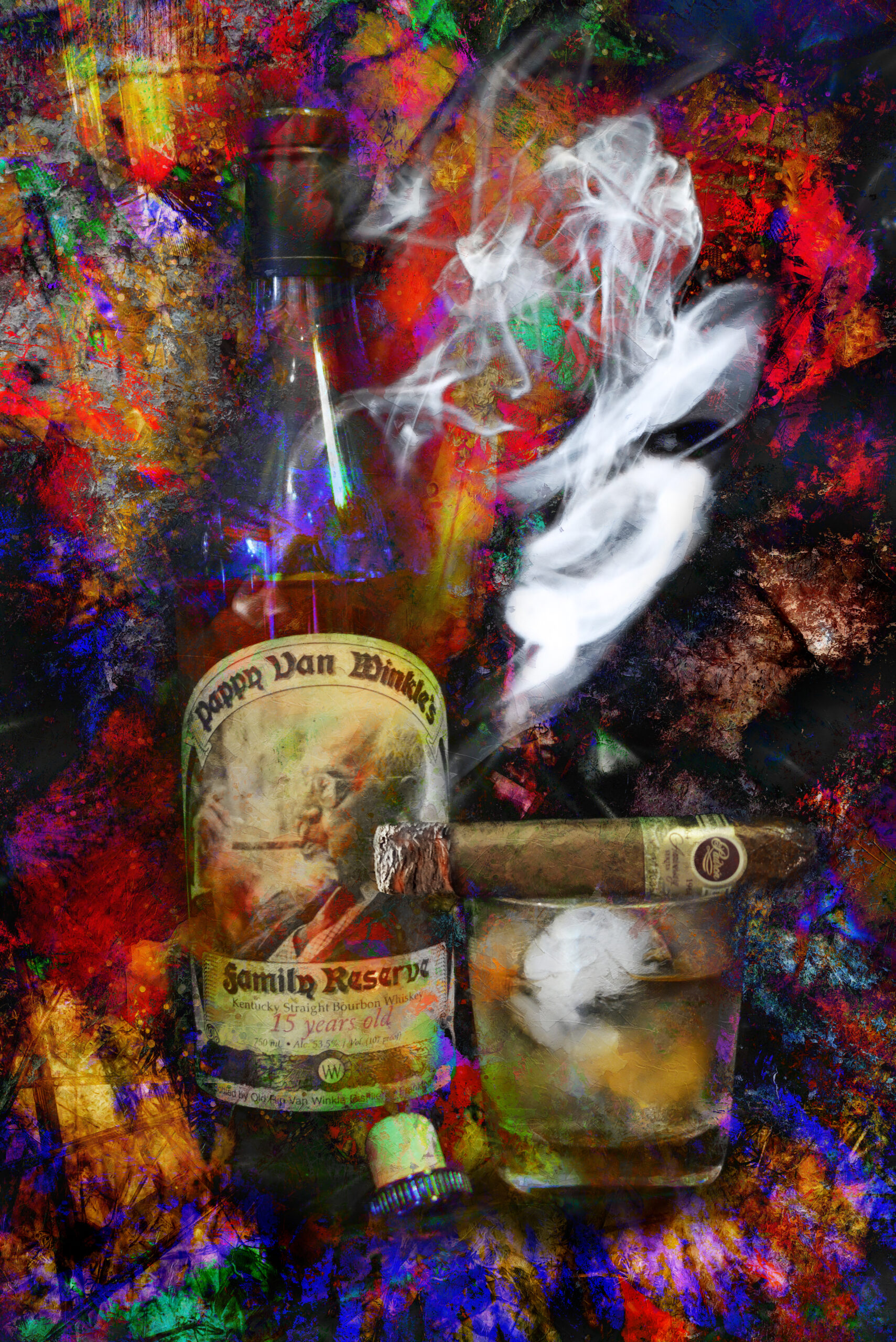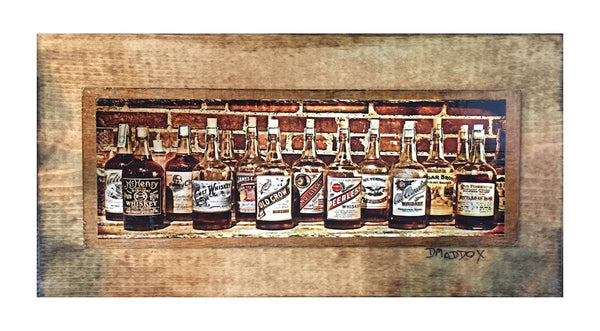Unveiling the Elegance of Bourbon Art: A Tribute to Craft Distillers
Capturing the Significance of Scotch Art Through One-of-a-kind Visual Depictions and Designs
The art of bourbon prolongs beyond the fluid itself, materializing with a selection of aesthetic representations that encapsulate its storied heritage and workmanship. What continues to be to be discovered is how these progressing designs mirror not only the whiskey itself yet also the altering landscape of creative analysis. Bourbon Art.
The History of Bourbon Art

As scotch manufacturing spread, so too did the wish to raise its experience with art. From the elaborate inscriptions on early casks to the intricate tags of modern bottles, each component reflects a special artistic vision, working as an aesthetic narrative of the scotch's heritage.
In the 19th and 18th centuries, the surge of the industrial change further enhanced scotch art, bring about innovative packaging and advertising and marketing that captured consumer interest. Musicians and developers began exploring with visual appeals, imbuing whiskey-related imagery with symbolic definitions that conveyed notions of craftsmanship, area, and tradition.
Today, scotch art remains to advance, mixing typical techniques with contemporary art kinds. Realism Art. This recurring discussion between the spirit and its aesthetic representation highlights the enduring bond between whiskey and culture, enriching the overall experience for enthusiasts worldwide
Iconic Container Layouts
While lots of aspects add to the appeal of scotch, renowned bottle designs play a critical role in forming customer understanding and enhancing the total experience. The aesthetic discussion of whiskey bottles is not just an aesthetic consideration; it works as a bridge between the item and the customer, evoking feelings and establishing expectations.
Distinct forms, materials, and closures can raise a scotch brand's identification, making it promptly identifiable on crowded shelves. For instance, the timeless Glenfiddich bottle, with its classy conical silhouette, shares a sense of custom and craftsmanship, while the vibrant, contemporary layout of the Balvenie container reflects technology and class. In addition, using tinted glass or distinct appearances can suggest the high quality and personality of the scotch within.
Famous styles frequently integrate elements of cultural heritage, representing the brand name's background and connection to its roots. Brand Names like Jack Daniel's utilize a simple, durable layout that reverberates with its American bourbon heritage. Ultimately, the effect of container layout expands beyond plain capability; it encapsulates the essence of the brand, welcoming customers to explore and indulge in the abundant tapestry of whiskey society.
Tag Art Work and Branding
Container layouts often set the stage for what customers can anticipate, however tag artwork and branding play a similarly considerable function in communicating a whiskey's identity. The label functions as the initial factor of get in touch with in between the consumer and the product, enveloping the significance of the scotch within its visual elements.
Reliable tag artwork integrates color, typography, and imagery to develop a story that reverberates with the brand's heritage and target audience. A label including complex illustrations and classic font styles may stimulate a sense visit this page of practice and workmanship, appealing to aficionados. In contrast, vibrant colors and modern style elements could draw in a more youthful market looking for technology and excitement.


Photography and Visual Narration
Recording the essence of scotch with digital photography and aesthetic storytelling is an art kind that elevates the brand experience. This medium transcends simple item depiction, delving into the detailed narratives that surround each bottle. By utilizing compelling images, digital photographers can evoke emotions that resonate with consumers, ultimately building a deeper connection to the scotch brand name.
Aesthetic narration in bourbon photography often utilizes rich textures, lighting, and composition to highlight the distinct attributes of the spirit. The interaction of light and darkness can highlight the amber colors of scotch, while the option of background aspects-- such as rustic barrels or stylish glasses-- can reinforce the brand's heritage or lifestyle organizations.
In addition, capturing the ceremonial facets of bourbon intake, from the Visit Website putting to the tasting, invites viewers right into a sensory experience, allowing them to think of the flavors and aromas that wait for. Each photo not only showcases the product yet additionally narrates of craftsmanship, practice, and the minutes that scotch can enhance - Bourbon Art. Thus, digital photography ends up being a powerful device in verbalizing the identification of whiskey brand names, placing them within the wider social landscape
Arising Fads in Bourbon Art
The advancement of whiskey art is progressively formed by contemporary fads that reflect wider social shifts and customer choices. This shift not just highlights the importance of sustainability however additionally enhances the story bordering bourbon production.
Furthermore, electronic art has surged in appeal, enabling cutting-edge representations of scotch. Musicians are leveraging technology to craft immersive experiences, such as enhanced truth setups that involve viewers and supply a much deeper understanding of bourbon's cultural importance. This trend additionally reaches social media platforms, where visually striking material gathers attention and promotes neighborhood amongst fanatics.
Furthermore, collaborations between whiskey brand names and musicians are coming to be much more widespread. These collaborations generate limited-edition product packaging layouts and exclusive artworks that commemorate both the workmanship of bourbon and the creative thinking of musicians. As bourbon art remains to evolve, these emerging trends will certainly Click This Link shape its future, promoting a dynamic crossway of culture, sustainability, and technology within the whiskey community.
Final Thought
To conclude, the art of scotch encompasses a diverse array of graphes that show its rich heritage and craftsmanship. From iconic container layouts and complex tag art work to engaging photography, each element adds to a more comprehensive story that improves the customer's experience. As emerging trends, such as digital art and sustainability, proceed to shape this creative landscape, the complex identification of whiskey stays a sustaining source of social link and exploration.

In verdict, the art of whiskey incorporates a varied selection of aesthetic depictions that show its abundant heritage and craftsmanship.